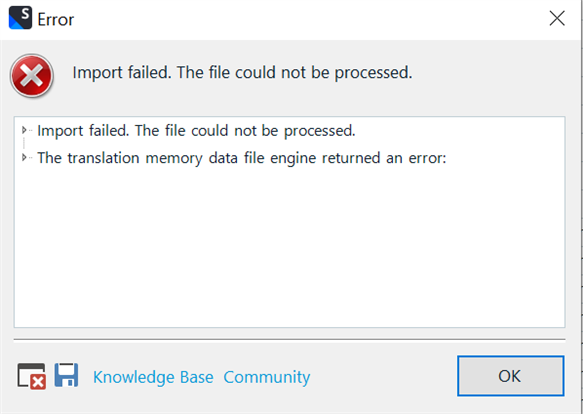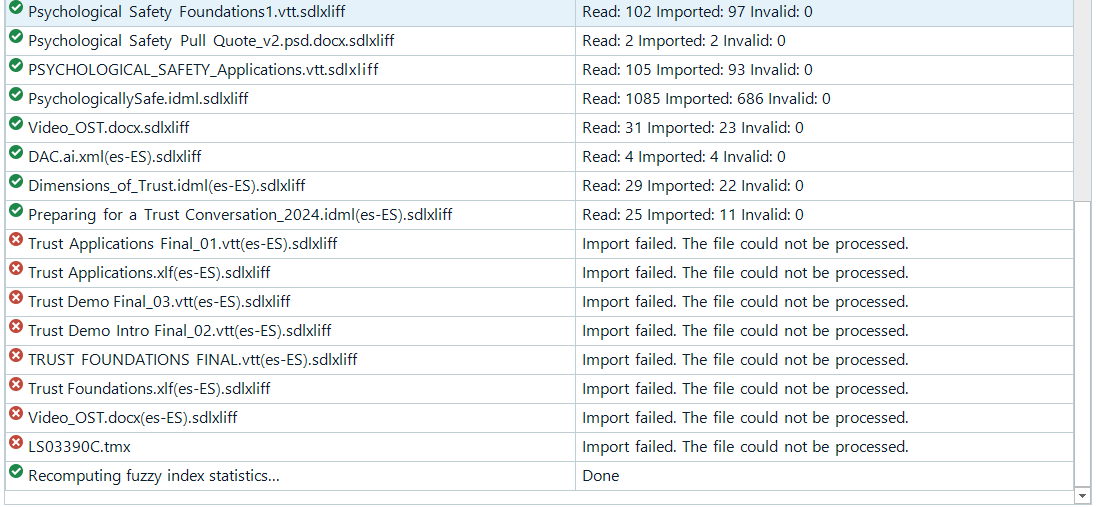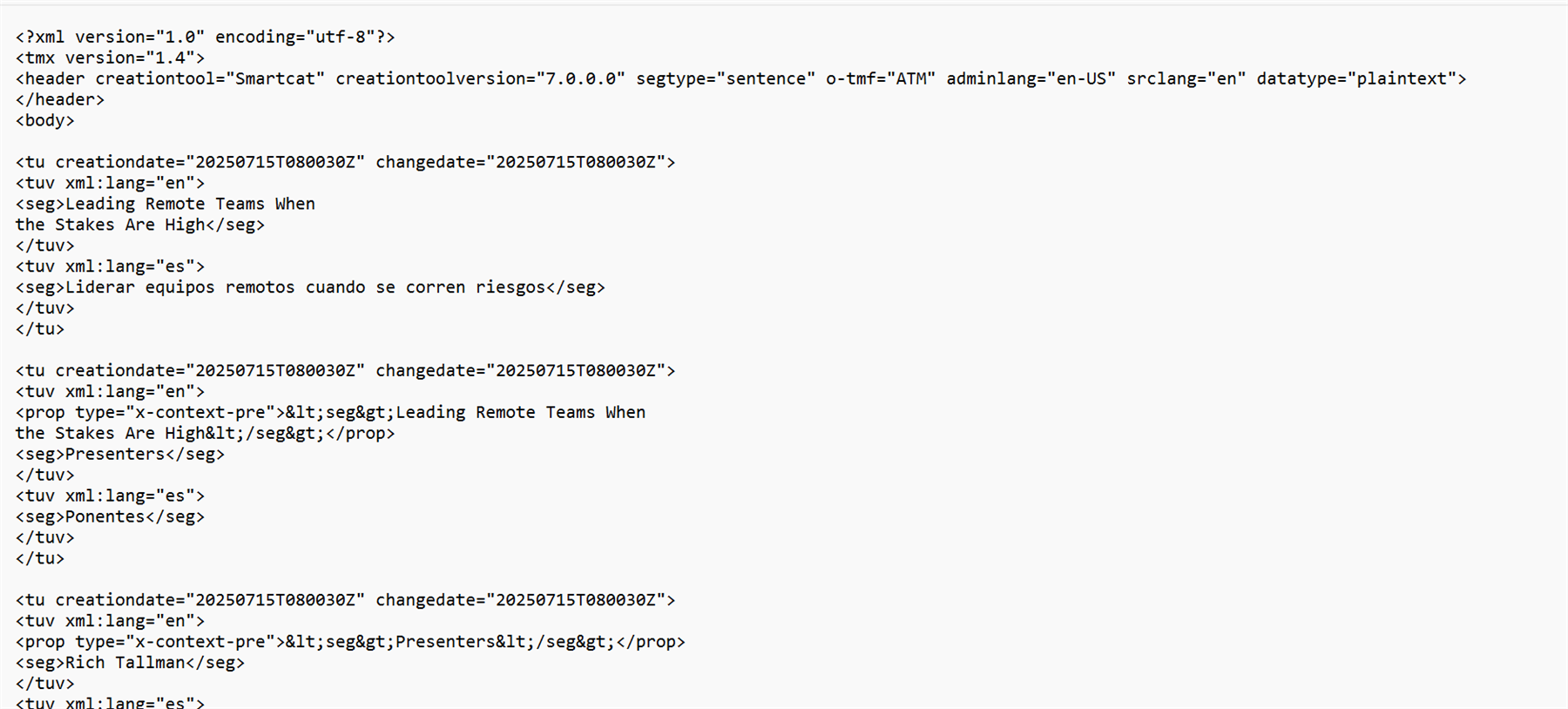Hi team, this is important:
I’m experiencing issues when trying to import a TMX file from Smartcat into Trados as an SDLTM. The TMX file is valid and error-free, but Trados still returns errors during import.
I am attaching Trados error screenshot.
We need a solution that works for both of us, one using Smartcat and the other Trados, so the TMX can be converted to SDLTM smoothly and reliably.
Can anyone suggest a workable fix or workaround?
Don't hesitate to reach out to me d irectly on Teams.
irectly on Teams.
Generated Image Alt-Text
[edited by: RWS Community AI at 2:09 PM (GMT 1) on 11 Aug 2025]


 Translate
Translate






